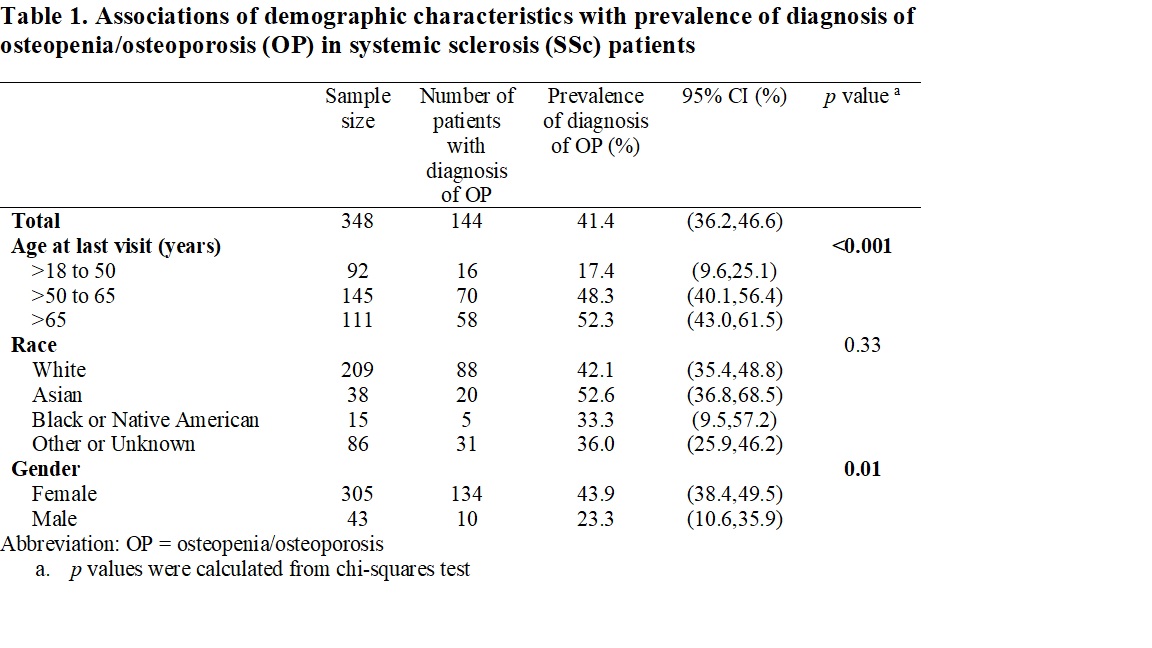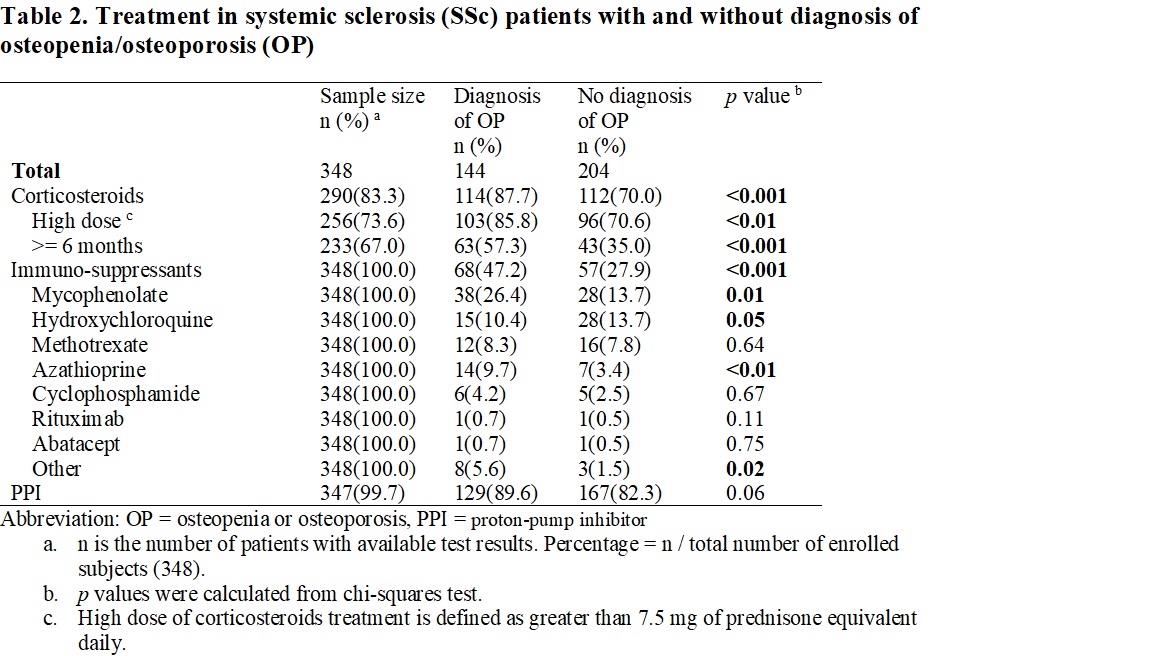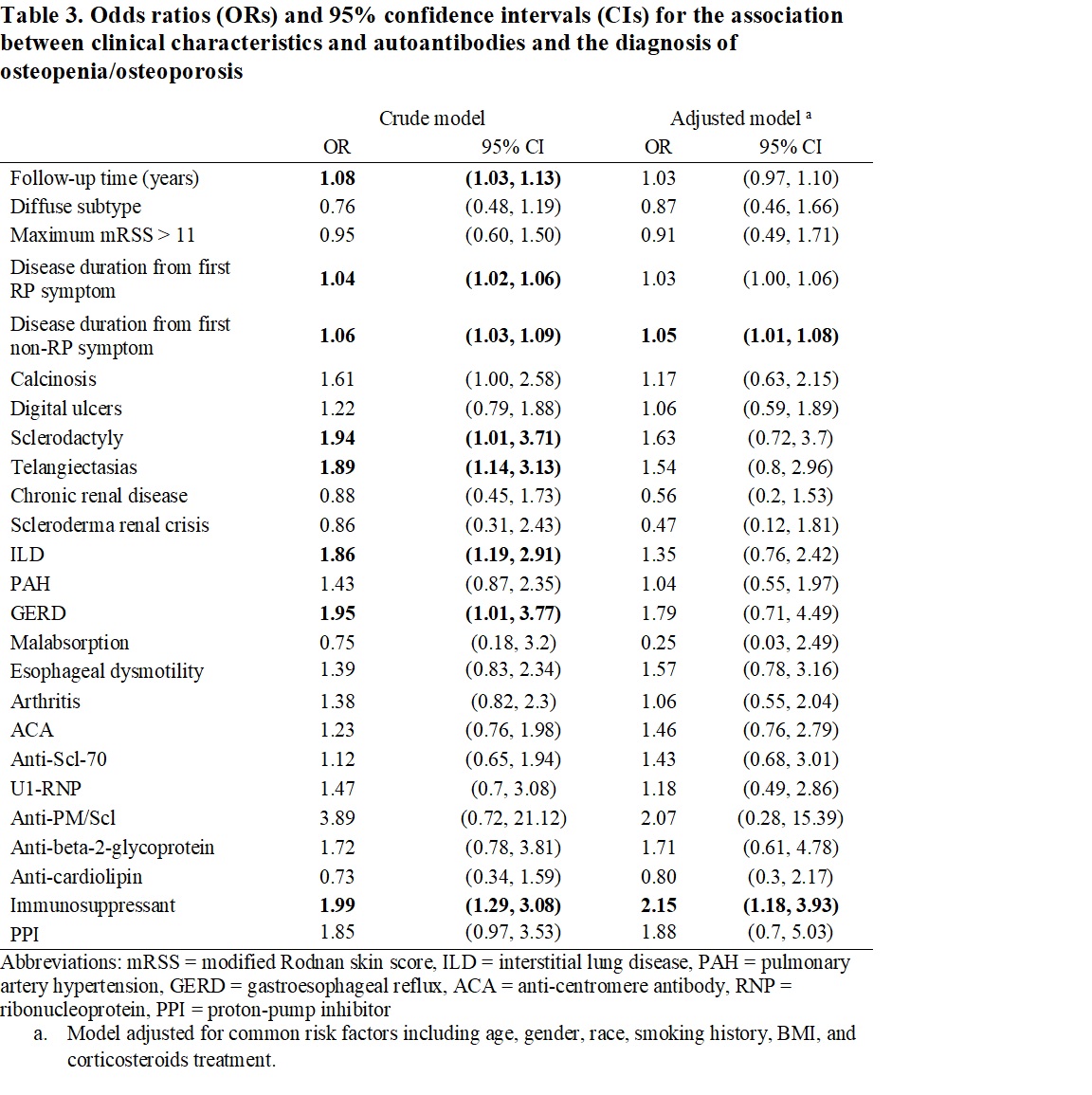Session Information
Session Type: Poster Session A
Session Time: 9:00AM-11:00AM
Background/Purpose: This study aims to determine the prevalence of a diagnosis of osteopenia/osteoporosis (OP) in systemic sclerosis (SSc) patients and to identify the clinical and serologic features independently associated with OP in SSc patients.
Methods: This is a cross-sectional study of 348 adult patients who visited the Stanford Rheumatologic Dermatology Clinic from January 2006 to March 2016 and were diagnosed with SSc according to the revised 2013 ACR/EULAR criteria for SSc. We compared the clinical characteristics, autoantibodies, and treatment of SSc patients with a diagnosis of OP to those without a diagnosis of OP. We used logistic regression analyses to identify clinical characteristics and autoantibodies associated with a diagnosis of OP in SSc patients.
Results: The prevalence of a diagnosis of OP in our SSc cohort was 41.4% (144/348, 95% CI: 36.2%, 46.6%) and was significantly higher in female patients and those >50 years of age (Table 1). Patients with a diagnosis of OP had longer disease duration and were more likely to have sclerodactyly, telangiectasias, interstitial lung disease (ILD), and gastroesophageal reflux. Patients with a diagnosis of OP were more commonly treated with corticosteroids and non-corticosteroids immunosuppressants (Table 2). Longer disease duration and non-corticosteroid immunosuppressant use were significantly associated with a higher odds of diagnosis of OP in logistic regression models adjusted for common risk factors for OP including age, race, gender, smoking history, body mass index, and corticosteroid treatment (Table 3).
Conclusion: More than 40% of SSc patients have a diagnosis of OP during the course of disease. Longer disease duration and non-corticosteroid immunosuppressant use increased the odds of diagnosis of OP in SSc patients.
To cite this abstract in AMA style:
Wang G, Mar D, Wu J, Simard J, Popat R, Chung L. Prevalence of a Diagnosis of Osteopenia/Osteoporosis Amongst Patients with Systemic Sclerosis and Identification of Associated Clinical Factors [abstract]. Arthritis Rheumatol. 2020; 72 (suppl 10). https://acrabstracts.org/abstract/prevalence-of-a-diagnosis-of-osteopenia-osteoporosis-amongst-patients-with-systemic-sclerosis-and-identification-of-associated-clinical-factors/. Accessed .« Back to ACR Convergence 2020
ACR Meeting Abstracts - https://acrabstracts.org/abstract/prevalence-of-a-diagnosis-of-osteopenia-osteoporosis-amongst-patients-with-systemic-sclerosis-and-identification-of-associated-clinical-factors/



